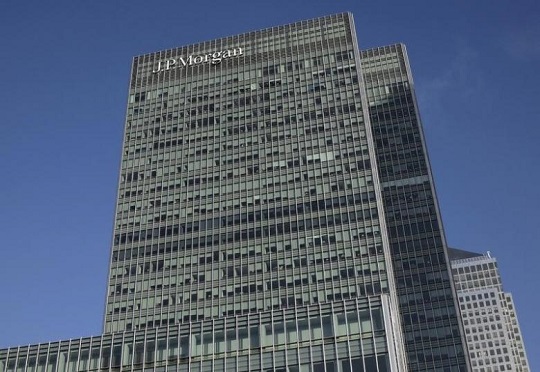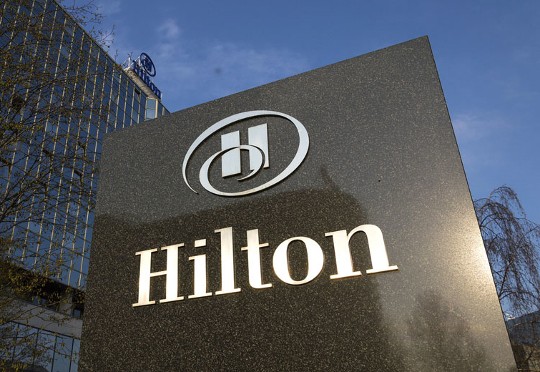By Wallace Mawire
African countries, especially in the African Regional Intellectual Property Organization (ARIPO) member states community, have been urged to endorse the proposed World Intellectual Property Organization (WIPO) broadcasting treaty for the protection of broadcasting organizations’ rights especially against cross-border piracy.
According to Carole Croella, Senior Counsellor, copyright law division, copyright and creative industries sector at the World Intellectual Property Organization, the proposed treaty on the protection of broadcasting organizations was adopted in 1996 at the WIPO Diplomatic Conference on Certain Copyright and Neighbouring Rights Questions in Geneva in December 1996. The treaties supplement the Berne Convention for the Protection of Literary and Artistic Works (Berne Convention) and the International Convention for the Protection of Performers, Producers of Phonograms and Broadcasting Organizations (Rome Convention).
According to Croella ,TV broadcasts are made of protected audiovisual works, protected musical works, materials which are not protected, content produced by broadcasters, content created and produced by third parties, content co-produced by several broadcasters, or by broadcasters and third parties.
She said that the main objective of the proposed treaty is to provide a stable legal
framework for the broadcasting organizations. Signal piracy is reported to be a major problem especially affecting many African countries highlighting the need for the countries to endorse a framework which would protect their broadcasting rights.
“Treaty seeks to update the rights of broadcasting organizations in response to new technologies and fight signal piracy exploitation and misappropriation of broadcast signals by unauthorized third parties,” Croella said.
According to Croella, the financial and organizational investment made for planning, producing, scheduling and disseminating signals to the public is recognized through a related right of the entrepreneurial effort. It is reported that in sports and news programming, where the value lies in the exclusive first transmission, it is vital for the broadcaster to be able to obtain an injunction immediately. She said that rights in content, is not enough.
Croella added that the new treaty seeks to replace the Rome Convention adopted in 1961 and has not been revised since then.
She added that the proposed treaty is forward looking and takes emerging technology issues into consideration, unlike the Rome Convention of 1961.She said that the Rome Convention does not grant protection against cable distribution of a broadcaster’s signal, does not grant protection against deferred rebroadcasts as opposed to live rebroadcasts, does not protect against the distribution of unauthorized reproductions of recordings of broadcasts and does not prevent “pirating” of a pre-broadcast signal.
According to Croella, signal piracy results in inadequate protection that others may freely profit from a broadcaster’s substantial and costly organizational and technical investment in its signal.
She added that the commercial motive behind piracy is to take advantage of investment and
creativity of legitimate broadcasters, authors and producers.
“Commercial exploitation of broadcasting rights is key to support the growth and investment in local content,” Croella said.
On effects of piracy, she said that broadcast piracy affects small and large broadcasters alike wherever
they operate.
“Signal piracy makes it significantly more difficult for public service broadcasters to sell their local content in foreign markets, especially when viewers in those markets already have access to the content through illegal websites,” she said.
She said that International Data Corporation (IDC) estimates the cost of illegal content distribution for the industry at more than $750m in Africa.
She said that sport broadcasting and high-profile sporting events are core income generators for
traditional broadcasters.
“Signal piracy impedes the broadcasters’ ability to secure those rights, jeopardize the financial sustainability of sporting events. It is important to take into account the investment required for providing the content,” Corella said.
On the impact of technological development especially on the digital platform, Croella gave examples which include the broadcasting of sporting events such as the Olympics, Cricket world Cup, FIFA World Cup among others.
She said in 2016 at the Rio Summer Olympic Games, CCTV’s broadcasts were pirated at a
rate of around 35 percent via online video websites. The 2017 cricket Indian premier league season, estimated that matches were illegally telecast by more than 1,700 unique URLs via 211 unique servers, 122 pirate streams, 51 hosting sites and 23 infrastructure providers via remote servers.
The principles of the proposed treaty are to protect broadcasting organizations against signal theft by free riders, broadcast signal to be protected from the moment it is created through primary use and against unlawful secondary exploitation, request for use of technology free definition to ensure that theinstrument remains relevant to emerging technologies.
On deferred transmissions, Croella said that the Rome Convention protects ‘simultaneous rebroadcasting’, not ‘deferred rebroadcasting’.
“Delayed rebroadcasting of signals is just as important as the right of simultaneous rebroadcasting. In reality, signal piracy is more likely on a deferred basis,” she said.
At the time of writing, WIPO was planning to host the General Assembly 2018 on the broadcasting treaty after almost 20 years of negotiations.
“In view of the progress made in recent Standing Committee on Copyright and Related Rights (SCCR) sessions, the General Assembly is invited to consider appropriate action towards convening a diplomatic conference for the adoption of a Treaty on the Protection of Broadcasting Organizations, subject to reaching consensus on fundamental issues, that is, objectives, specific scope and object of protection,” Croella said.
On how the treaty will benefit broadcasting organizations, Croella said that every country has a broadcasting sector, and by their ability to invest in local content, broadcasters are motors of social and economic development and for ensuring public access to information.
She added that economic studies provide the evidence that broadcasting makes a major contribution to the economy and to employment.
“Treaty will support the economic sustainability of broadcasting in developing countries, in particular the small ones which are economically harmed by piracy,” Croella said.
She added that the proposed treaty will benefit developed and emerging countries, from North to South and create win-win partnerships with content owners.
About Author:
Wallace Mawire is a journalist and an award-winning photojournalist based in Harare, Zimbabwe who has a passion of reporting development issues, especially those affecting the African continent. He is very interested in writing on sustainable development issues and is currently reporting actively on topics such as climate change and renewable energy. Wallace has also had the opportunity to travel on reporting assignments to countries in Africa such as Ethiopia, Kenya, Namibia, Ivory Coast, Malawi and Zambia. Through his work, he hopes to articulate issues which could have a positive impact and change on the African continent.


